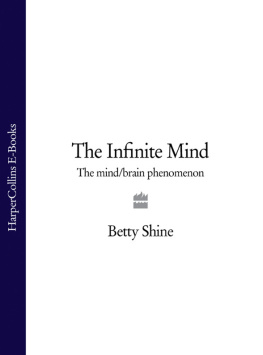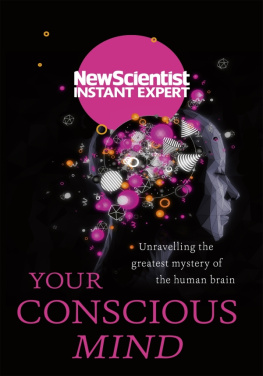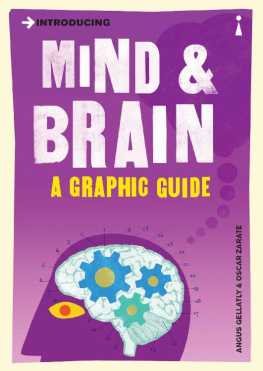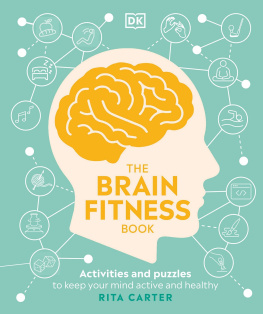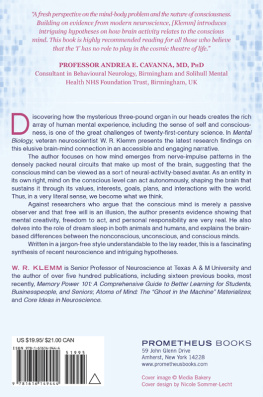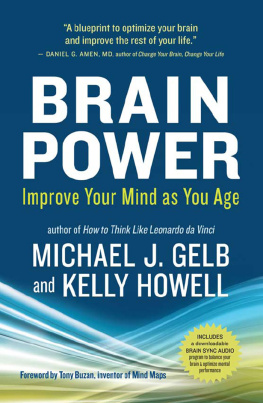Table of Contents
Praise for Making up the Mind
Chris Frith is well known for his extremely clear thinking on very complex psychological matters, such as agency, social intelligence, and the minds of people with autism and schizophrenia. And it is precisely such questions, along with the understanding of how we perceive, act, choose, remember, and feel, which are now being revolutionized by brain imaging. In Making up the Mind , he brings all this together in a most accessible and engaging way.
Oliver Sacks , MD
Making up the Mind is a fascinating guided tour through the elusive interface between mind and brain written by a pioneer in the field. The authors obvious passion for the subject shines through every page.
V.S. Ramachandran , MD
I soon made up my mind that this is an excellent, most readable and stimulating book. The author is a distinguished neuroscientist working especially on brain imaging.
R.L. Gregory , University of Bristol
Chris Frith, one of the pioneers in applying brain imaging to study mental processes, has written a brilliant introduction to the biology of mental processes for the general reader. This superb book describes how we recreate in our brains a representation of the external world. Clearly and beautifully written, this book is for all who want to learn about how the brain gives rise to the mental phenomenon of our lives. A must read!
Eric R. Kandel , Nobel Laureate
Important and surprising. The brain will never seem the same again.
Lewis Wolpert , University College London
For Uta
2007 by Chris D. Frith
BLACKWELL PUBLISHING
350 Main Street, Malden, MA 02148-5020, USA
9600 Garsington Road, Oxford OX4 2DQ, UK
550 Swanston Street, Carlton, Victoria 3053, Australia
The right of Chris D. Frith to be identified as the Author of this Work has been asserted in accordance with the UK Copyright, Designs, and Patents Act 1988.
All rights reserved. No part of this publication may be reproduced, stored in a retrieval system, or transmitted, in any form or by any means, electronic, mechanical, photocopying, recording or otherwise, except as permitted by the UK Copyright, Designs, and Patents Act 1988, without the prior permission of the publisher.
First published 2007 by Blackwell Publishing Ltd
1 2007
Library of Congress Cataloging-in-Publication Data
Frith, Christopher D.
Making up the mind : how the brain creates our mental world / Chris Frith.
p. cm.
Includes bibliographical references and index.
ISBN 978-1-4051-3694-5 (hardcover : alk. paper)ISBN 978-1-4051-6022-3 (pbk. : alk. paper) 1. BrainPopular works.
2. Human behaviorPhysiological aspects. 3. NeuropsychiatryPopular works. 4. NeuropsychologyPopular works. I. Title.
QP376.F686 2007
612.82dc22
2006038336
A catalogue record for this title is available from the British Library.
Set in 10/13pt Galliard
by Graphicraft Limited, Hong Kong
Printed and bound in Singapore
by COS Printers Pte Ltd
The publishers policy is to use permanent paper from mills that operate a sustainable forestry policy, and which has been manufactured from pulp processed using acid-free and elementary chlorine-free practices. Furthermore, the publisher ensures that the text paper and cover board used have met acceptable environmental accreditation standards.
For further information on
Blackwell Publishing, visit our website:
www.blackwellpublishing.com
Abbreviations
Preface
Inside my head there is an amazing labor-saving device. Better even than a dishwasher or a calculator, my brain releases me from the dull, repetitive task of recognizing the things in the world around me, and even saves me from needing to think about how to control my movements. I can concentrate on the important things in life: making friends and sharing ideas. But, of course, my brain doesnt just save me from tedious chores. My brain creates the me that is released into the social world. Moreover, it is my brain that enables me to share my mental life with my friends and thereby allows us to create something bigger than any of us are capable of on our own. This book describes how the brain makes this magic.
Acknowledgments
My work on the mind and the brain has been possible through funding from the Medical Research Council and the Wellcome Trust. The MRC enabled my work on the neuropsychology of schizophrenia through its support of Tim Crows psychiatry unit in the Clinical Research Centre at Northwick Park Hospital in Harrow, Middlesex. At that time we could only make indirect inferences about relationships between the mind and the brain, but this all changed in the 1980s with the development of brain scanners. The Wellcome Trust enabled Richard Frackowiak to create the Functional Imaging Laboratory and supported my investigations there into the neural correlates of consciousness and social interactions. The study of the mind and the brain cuts across traditional disciplines, from anatomy and computational neurobiology to philosophy and anthropology. I have been fortunate that I have always worked in multidisciplinary - and multinational - groups.
I have benefited greatly from my interactions with my colleagues and friends at University College London, in particular Ray Dolan, Dick Passingham, Daniel Wolpert, Tim Shallice, Jon Driver, Paul Burgess, and Patrick Haggard. At the early stages of this book I had many fruitful discussions on the brain and the mind with my friends at Aarhus, Jakob Hohwy and Andreas Roepstorff, and at Salzburg, Josef Perner and Heinz Wimmer. Martin Frith and John Law have argued with me about many of the topics covered in this book for as long as I can remember. Eve Johnstone and Sean Spence generously gave me expert advice on psychiatric phenomena and their significance for brain science.
Perhaps the most important impetus for writing this book came from my weekly discussions with the breakfast group, past and present. Sarah-Jayne Blakemore, Davina Bristow, Thierry Chaminade, Jenny Coull, Andrew Duggins, Chlo Farrer, Helen Gallagher, Tony Jack, James Kilner, Hakwan Lau, Emiliano Macaluso, Eleanor Maguire, Pierre Maquet, Jen Marchant, Dean Mobbs, Mathias Pessiglione, Chiara Portas, Geraint Rees, Johannes Schultz, Sukhi Shergill, and Tania Singer all have helped to shape this book. I am deeply grateful to them.
Karl Friston and Richard Gregory read sections of the book and have given me much help and useful advice. I am grateful to Paul Fletcher for his encouragement at an early stage to create the Professor of English and the other characters who argue with the narrator.
Philip Carpenter went well beyond the call of duty to provide incisive comments.
Most of all I am grateful to those who read all the chapters and provided detailed comments. Shaun Gallagher and two anonymous readers made many useful suggestions. Rosalind Ridley caused me to think more carefully about my claims and to be more precise in my terminology. Alex Frith helped me to eliminate jargon and failures of continuity.
Uta Frith was closely involved in all stages of the development of the project. Without her example and guidance this book would not exist.



